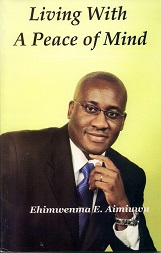 |
|
There are more than a million blacks in Cuba, although you can’t always tell
from what you see in the mainstream American media, which tends to paint the
country white. In fact, according to the Central Intelligence Agency, only 37
percent of the population is Caucasian, one percent is Chinese, 51 percent is
multiracial and 11 percent is black.
With such racial dynamics coupled with a history
of slavery, it’s no surprise that there is racial inequality. Despite Castro’s
promise of a “racial democracy,” many Afro-Cubans feel the government sweeps
the issue of ethnic or racial identity under the rug, choosing to focus on class
instead. Even if their plight has been ignored by both pre- and post-revolutionary
governments, these blacks have a very strong voice, or rather a chorus of voices,
that shines through in Afro-Cuban Voices, co-edited by Pedro Perez Sarduy and
Jean Stubbs. “Afro-Cuban Voices presents the insights of black Cubans who have
a deep belief in the Cuban Revolution but who at the same time identify with
the integrity and beauty of black Cuban people,” Manning Marble, the director
of the Institute of Research in African-American Studies at Columbia University,
writes in the book’s introduction.
A collection of essays and interviews, Afro-Cuban
Voices adds a significant voice that we rarely heard on television or in newsmagazines.
“Ever since Cuba has been Cuba, there have been blacks and whites in our country.
The whites always had the power, have always been better placed,” says poet
Georgina Herrera in her interview with Sarduy. Those interviewed express the
urgent need to end the silence, inaccurate history, and stereotyping. They also
commemorate the successes of blacks in Cuba. They discuss the rise of prostitution,
how they dealt with racism in daily life, and what changed after the revolution.
Together, they comprise a fluent testimony of both the good and the bad of the
revolution, shedding light of its many contradictions.
Juan Benkomo, a craftsman who makes the batá drums,
talks about the spread of the African-based religion Santeria, saying that one
of changes over the last thirty years has been an increase in religious tolerance.
“What’s true is that Santería is on the increase – though the orishas were always
venerated in this country, what happened was that their worship was repressed,”
he tells Sarduy. |
|
The Political & Spiritual Purpose of the
Holy Land
 |
| |
|
Another interviewee, Reynoldo Peñalver Moral, speaks of the
burden of racism during his early years as a journalist in the late 40s.
Getting a foot in the door was almost impossible. “Black journalists were
not well received in the mainstream press of the time They’d take on a
black journalist to do a social column on the black societies not to do
them a favor but to attract black readers,” he says.
The book assumes a knowledge of Cuban history
that many Americans may not share, but its introduction provides a brief and
helpful synopsis, discussing the Cuban Revolution, Castro’s special relationship
with blacks of the Diaspora (for example, in the 1960, he supported numerous
black anti-colonial struggles around the world) and Cuba’s liaison with the
Soviet Union. Throughout, Fidel Castro is portrayed neither as the Satanic Beast
the American media paints him, nor as a saint – merely as a politician.
Afro-Cuban Voices is an enlightening read, a book
that draws directly from the source, Cubans in Cuba. It’s a powerful experience
to hear their voices, and a useful balance to the often incomplete image of Cuba
seen in the U.S. The complexity of Afro-Cuban life has things to teach African
American readers – I applaud Sarduy and Stubbs for shrinking the gap of
ignorance.
Nnedimma Okorafor is a writer living in Chicago.
|
|
|
![]()